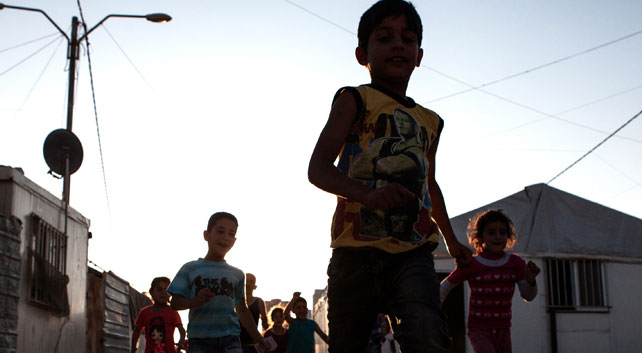28th January 2016
Syria: rejecting indifference


There has been war in Syria throughout Pope Francis’s pontificate. It has been the principal foreign policy concern of the Holy See since his election, and continues to be so. His Holiness has spoken out many times about the need for action to stop the war in Syria, and it is reasonable to suppose that when he criticises what he calls “the globalisation of indifference”, it is Syria that that springs to his mind. The Holy See is also deeply concerned about the future of Christianity in the Middle East, as members of the many different Christian communities in Iraq and Syria join others in fleeing the conflict and instability.
The Pope is right that our priority should be to tackle what he has called “the humanitarian tragedy” of Syria. That is why the United Kingdom will co-host a conference in London on 4 February, with Germany, Kuwait, Norway and the United Nations, that will seek not only to address the humanitarian challenges faced by the people of Syria, but also take an ambitious and creative new approach to provide longer term support for refugees, including jobs and education. The conference will also support Syria’s neighbours who have shown extraordinary generosity and saved many lives with their hospitality towards Syrian refugees. Pope Francis made a point of highlighting their “generous solidarity” when he spoke to the Holy See diplomatic corps on 11 January, “especially Lebanon, where refugees make up a fourth of the total population, and Jordan, which has not closed its borders”.
The United Kingdom recognises that military solutions are not the way to end the conflict. Our strategy includes working hard towards a political transition to a peaceful future, and we have been strong supporters of the series of negotiations in Geneva towards that goal. Militarily, we contribute to the campaign in the region to defeat Daesh. And on the humanitarian side, we are the second largest bilateral donor, focusing on the provision of food, shelter, medical care and drinking water to thousands of Syrians.
We clearly need to do more. Catholic agencies such as the Jesuit Refugee Service and Caritas have done an extraordinary job alongside other aid organisations in the most difficult circumstances. The conference in London will bring together global leaders, NGOs, the private sector and civil society with the primary aim of offering Syrians greater hope and opportunities for the future. We are pleased that the Holy See will also attend, in the shape of Archbishop Gallagher, the Secretary for Relations with States of His Holiness. Pope Francis is right. We cannot be indifferent. Archbishop Gallagher will, I am sure, remind the gathering of the need to act to end the war and end the suffering of too many people. The London conference, “Supporting Syria and the Region”, will we hope be a crucial and practical milestone towards those objectives.